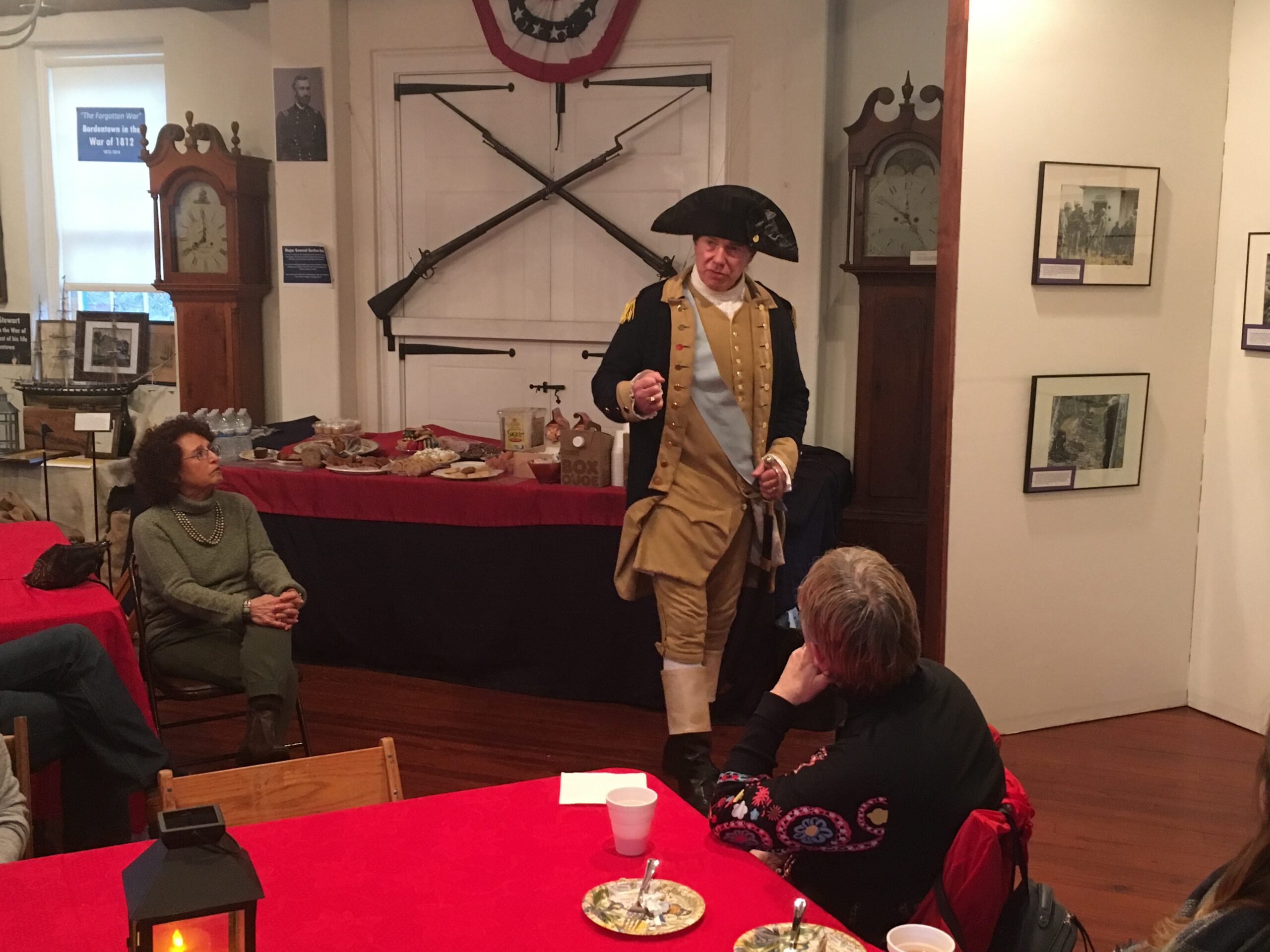Editor’s note: This is an update to a story previously published. The Colonel Edward Hand Historic March on Jan. 2 has since been canceled.
The annual Colonel Edward Hand Historic March re-enactment, set for Jan. 2, has been canceled by Lawrence Township officials because of the increase in COVID-19 cases in Lawrence and the surrounding communities.
The 59th annual re-enactment would have taken marchers along Lawrence Road/Route 206 from the Lawrence Township Municipal Building to the banks of the Shabakunk Creek at Notre Dame High School, the scene of one of many skirmishes between the American troops and their British and Hessian counterparts.
The event is a re-enactment of the American patriots’ delaying tactics before the Second Battle of Trenton on Jan. 2, 1777.
The event was created in 1961 by the late Robert Immordino, who was the official Lawrence Township historian.
Hand and his band of Pennsylvania riflemen delayed the advance of British and Hessian troops on their way from Princeton to re-take Trenton from the Americans during the afternoon of Jan. 2, 1777.
The series of events that led to the Second Battle of Trenton and Hand’s delaying tactics can be traced to the series of defeats suffered by General George Washington and his troops between August and November 1776. The American rebels retreated to Pennsylvania.
On Christmas Day 1776, Washington and 2,400 soldiers crossed the Delaware River from Pennsylvania and marched to Trenton, where they routed the Hessian troops in the First Battle of Trenton. They crossed the Delaware River to Pennsylvania after the battle.
Several days after the famous battle, Washington and his troops crossed the Delaware River again and stopped in Trenton. The British and Hessian troops were sent to Trenton to re-take the small town from the Americans on Jan. 2, 1777.
Hand and the 1st Pennsylvania Rifle Regiment were dispatched to slow down the British and Hessian troops as they marched from Princeton to Trenton. The Americans engaged the troops in several skirmishes as they passed through Maidenhead, as Lawrence was originally known.
Despite the delaying tactics of Col. Hand and his soldiers, the British and Hessian troops reached Trenton at dusk on Jan. 2, 1777, and engaged Gen. Washington and his soldiers in the Second Battle of Trenton.
The Americans retreated and crossed a bridge over the Assunpink Creek. Their British and Hessian pursuers tried three times to cross the bridge, but they were turned back each time.
The British were going to continue the fight the next day. But during the night and into the morning of Jan. 3, 1777, Washington led his soldiers around the British and Hessian encampment, and followed a back road to Princeton. The American troops surprised the British troops stationed there in what became known as the Battle of Princeton – and a turning point in the American Revolutionary War.

